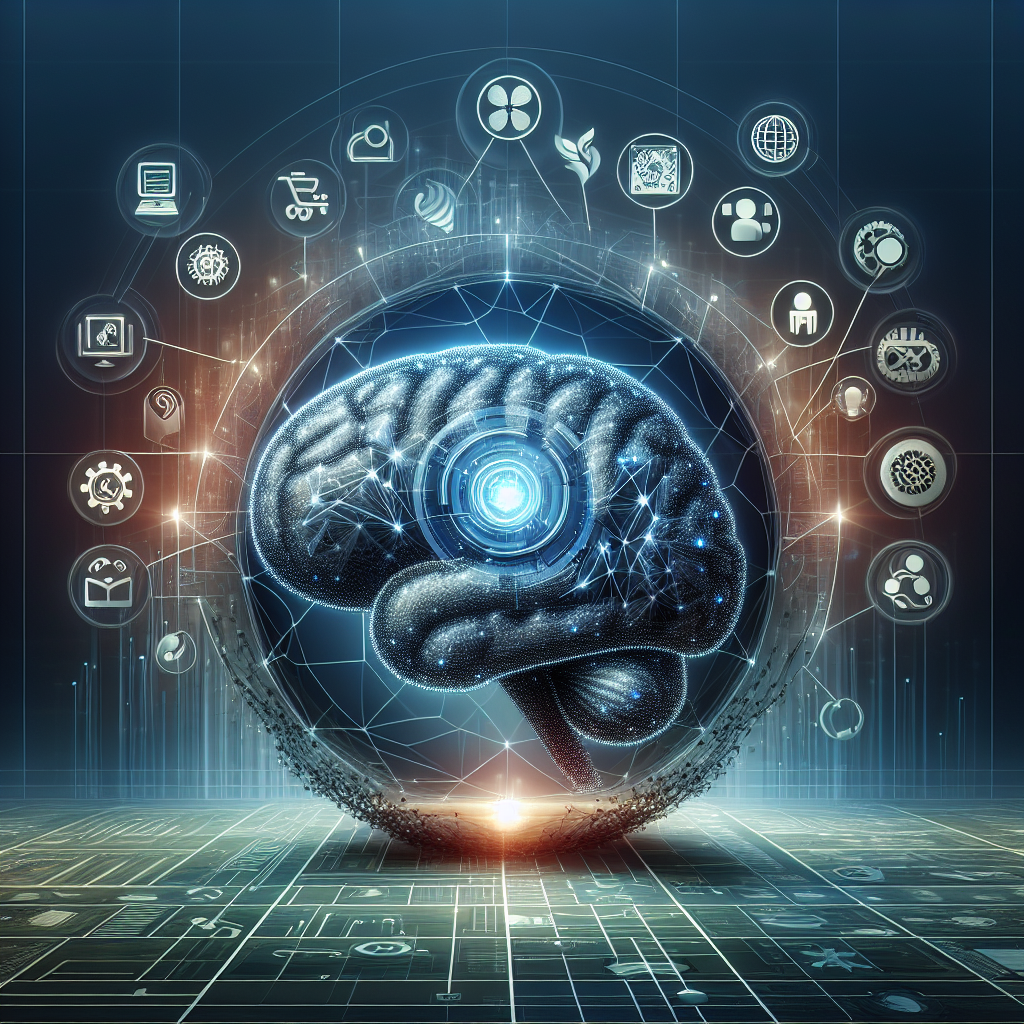The Age of AGI: How Artificial General Intelligence is Transforming Industries
Artificial General Intelligence (AGI) is the next frontier in the field of artificial intelligence. Unlike narrow AI, which is designed for specific tasks, AGI is a form of AI that has the ability to understand, learn, and apply knowledge across a wide range of tasks and domains. This has the potential to revolutionize industries and change the way we live and work in profound ways.
In this article, we will explore the impact of AGI on various industries and how it is transforming the way businesses operate. We will also address some common questions and concerns about AGI and its implications for society.
The Rise of AGI
The concept of AGI has been around for decades, but recent advancements in machine learning and neural networks have brought us closer to realizing this vision. AGI is seen as the holy grail of artificial intelligence, with the potential to outperform humans in a wide range of cognitive tasks.
One of the key challenges in developing AGI is achieving human-level intelligence and adaptability. While narrow AI systems excel at specific tasks like image recognition or natural language processing, they lack the ability to generalize and apply knowledge across different domains. AGI aims to bridge this gap by creating AI systems that can understand and learn from complex data, make decisions autonomously, and adapt to new information.
The Impact of AGI on Industries
The potential of AGI to transform industries is immense. From healthcare to finance, manufacturing to transportation, AGI has the ability to streamline operations, increase efficiency, and drive innovation in ways we have never seen before.
In healthcare, AGI can revolutionize diagnostics and treatment by analyzing large amounts of medical data to identify patterns and predict outcomes. This can lead to more accurate diagnoses, personalized treatments, and better patient outcomes. AGI can also help healthcare providers optimize their workflows, reduce costs, and improve the overall quality of care.
In finance, AGI can revolutionize trading and investment by analyzing market trends, predicting stock prices, and making decisions in real-time. This can lead to more profitable trades, reduced risk, and increased returns for investors. AGI can also help financial institutions detect fraud, manage risk, and automate routine tasks, freeing up time for employees to focus on higher-value activities.
In manufacturing, AGI can revolutionize production processes by optimizing supply chains, improving quality control, and increasing productivity. AGI can also enable the development of autonomous robots and drones that can perform tasks with precision and efficiency. This can lead to faster production cycles, reduced costs, and higher-quality products.
In transportation, AGI can revolutionize logistics and delivery by optimizing routes, predicting demand, and managing fleets in real-time. AGI can also enable the development of autonomous vehicles that can navigate roads safely and efficiently. This can lead to reduced traffic congestion, lower emissions, and safer roads for everyone.
FAQs about AGI
Q: What are some potential risks and challenges associated with AGI?
A: One of the biggest concerns about AGI is the potential for misuse and unintended consequences. AGI systems have the potential to make decisions that are harmful or unethical if not properly designed and supervised. There is also the risk of job displacement, as AI systems become more capable of performing tasks that were previously done by humans.
Q: How can we ensure that AGI is developed responsibly and ethically?
A: It is important for developers and policymakers to consider the ethical implications of AGI and implement safeguards to prevent misuse. This includes ensuring transparency in AI systems, promoting diversity in AI development teams, and educating the public about the risks and benefits of AGI.
Q: Will AGI replace human workers in the future?
A: While AGI has the potential to automate many tasks currently performed by humans, it is unlikely to completely replace human workers. AGI systems are designed to complement human intelligence and enhance our capabilities, rather than replace them entirely.
Q: How can businesses prepare for the age of AGI?
A: Businesses can prepare for the age of AGI by investing in AI research and development, training their employees to work alongside AI systems, and adapting their business models to take advantage of new opportunities. It is important for businesses to stay informed about the latest developments in AI and be proactive in embracing new technologies.
In conclusion, the age of AGI is upon us, and its impact on industries is already being felt. From healthcare to finance, manufacturing to transportation, AGI has the potential to revolutionize the way we live and work in profound ways. While there are challenges and risks associated with AGI, there are also immense opportunities for innovation, growth, and progress. By embracing AGI responsibly and ethically, we can harness its power to create a better future for all.

